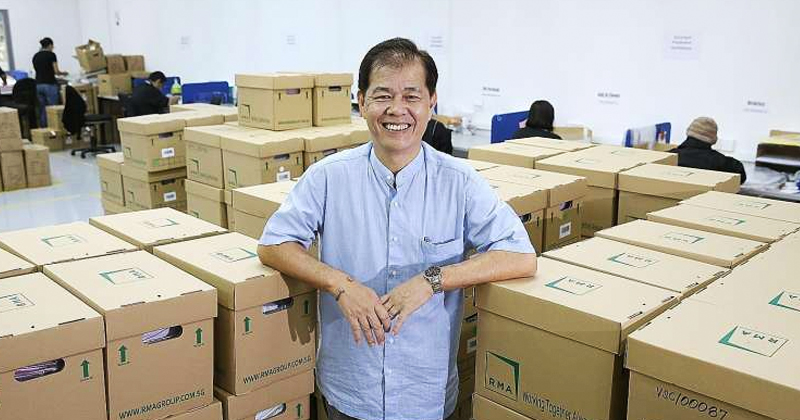
Q. What is BCM, and why did you go for the full BCM certification?
A. BCM is about what you have to put in place to ensure business continuity. There are two parts to it - what you would call the necessary business continuity management, which is what one does to ensure recovery from disaster. This is usually done at the location of operations.
The second part is what is done when the company is recovering from disaster. In this case, you could have something in place to ensure that business operations carry on, like back-up support facilities, people, and systems that can be up and running in no time.
We do both because this is very much in line with the clients we serve - banks, important authorities like the Inland Revenue Authority of Singapore and the Civil Aviation Authority of Singapore. We need to have BCM as we serve the Government.
We got the international certification in 2014. I believe in standards because I'm an engineer by training. Standards help the company because we go through a process where everything is done in a systematic, orderly manner, and advised and checked by third-party experts. Yearly audits also remind everyone to "wake up".
The key thing is that one must be proactive, not reactive. Standards ensure that you are proactive.
Having a third party to check is also important. If we review ourselves, there is always no problem.
The idea is proactive planning - you have to look for problems before they happen. It is something which a lot of companies don't do.
Q. What benefits do you think the company has reaped from the certification?
A. With BCM certification, our government body clients are definitely more comfortable. It's difficult for clients to know what the standards are and to ensure adherence. So having a third-party international body is good. We were able to improve our standard operating procedures as well.
Another benefit of BCM is education of staff - it helps them recognise the need to adhere to standards.
The greatest benefit of certification is that we set up yearly reviews. You'll be surprised - many companies don't do this. So when things happen, it's too late.
This was one of the holes I saw when I was growing this company too. We can drown in the day-to-day work of ensuring revenue and addressing clients' issues.
Q. What kind of business processes are growing in demand?
A. On a short-term basis of between one and five years, the demand is for digitisation. A lot of companies are using computers for workflow, so we can help them with that.
We put whatever they have into a digitised form so they can use it easily, as opposed to looking for physical files.
In the medium term, it will be transaction processing where companies have to deal with third parties, as well as security requirements. They want to work with a company that can help them put information in order, as well as a company that can help them navigate the flows between downstream service providers to them.
Q. What are RMA's plans for growth this year?
A. Our strategy for growth is regional as well as local expansion through new marketing and revenue streams in new sectors.
We are not very big in the private sector as we don't really do sales. We are going to do that.
Multinationals are now willing to use us in countries like Myanmar despite knowing that they have to pay a premium for us compared with local companies in Myanmar.
But these countries don't have a strong support infrastructure.
In Myanmar, we are helping Shell, and we are helping Visa in India hire a contingent workforce.
So far, we have been quite reactive but we plan to be more proactive in our regional strategy.

